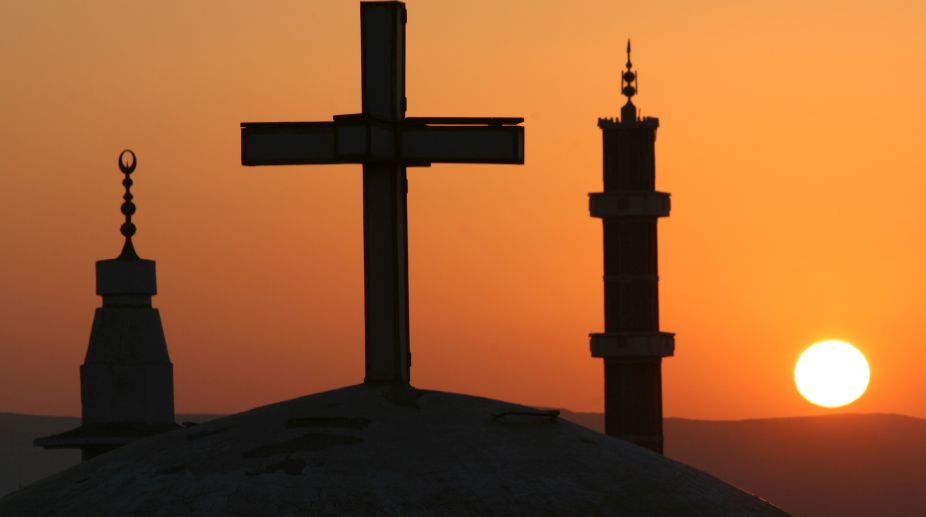KMC rolls back new parking fee rates
Earlier last week, the civic body had announced a hike in parking fees, which came into effect from 1 April.

Representational image (Photo: Getty Images)
Kerala on Friday saw a contrast as Hindus celebrated Vishu while Christians commemorate Good Friday.
Vishu is the traditional New Year's Day believed to signal the arrival of good luck and fortune for the coming year, while Good Friday is a day filled with prayers, penance and fasting to commemorate the crucifixion of Jesus Christ on Calvary Hills nearly 2,000 years ago.
Advertisement
When it came to the menu, Friday again saw a contrast as the major meal for the day for the Hindus is the traditional 26-course vegetarian lunch, served on a banana leaf. In northern Kerala districts, the menu also consists of non-vegetarian dishes.
Advertisement
But for the Christians, more specifically for the devout ones, it's a day where 'kanji' – the hot steaming hot gruel made with rice is served immediately after the mass ends at churches in bowls with mango pickle and a serving of pulses.
The common factor for the two communities is that both the temples and churches were very crowded.
On Vishu, the Hindus begin the day with the 'Vishukani darshan' — auspicious sight of their favourite deity in the first thing in the morning.
For this, elders and women begin preparations for 'Vishukani' the previous night with 'urali' (a special vessel) cleaned and then filled with fresh farm produces.
The items that are placed include rice, grains, cucumber, pumpkin, coconut, plantains, mangoes and areca nut.
All these are arranged in their worship room that is decorated with bright yellow konna flowers (cassia fistula — also known as the Golden Shower Tree).
The young and old come blindfold in front of the 'Vishukani' that is placed in front of their favourite deity and see this as the day's first sight.
Another important feature on this day is the giving away of 'vishukaineetam' (a gift) and it is mostly given in coins.
The general custom is the head of the household gives away coins to other members and there are some who are particular to get theirs from people who are considered as lucky charms.
"I have to set aside Rs.10,000 on this day as I give offerings of Rs.100 to the temple staff where I frequent and then comes the various workers in and around my general provision store. I have been following this practise for close to four decades, ever since I started my business," said K Ramesan, a trader in the capital city.
For the Christians, Friday morning is considered one of the most sacred days when churche are packed with faithfuls. Even the not-so-faithful's also pay a visit to the church to take part in the service, which extends from morning 8.30 to around 3 p.m, in certain church denominations.
Among the key religious ceremonies listed for the day in churches is the 'Way of the Cross' – the 14 stations on Christ's Journey to Mount Calvary from Pilate's palace.
The bishops or the chief priest along with a large number of the laity re-enact Jesus journey with the worshippers moving to each station singing hymns as the story of the betrayal, arrest, trial and crucifixion of Christ is narrated by the priest.
Another important ceremony is the drinking of the 'choruka' (a decoction made of bitter gourd juice and vinegar) by all.
When the Good Friday mass reaches its last lap, the priest pours out a spoon of 'Choruka' into the mouth of all those attending the mass.
This symbolises the cry a crucified Jesus made just before he died, and how some of those watching took a piece of cloth, dipped it in wine, put it on a stick, lifted it to his mouth and tried to make him drink.
While Hindus celebrate Vishu in new dresses for all in the family, it's not the case for the Christian as they wait for Easter Sunday to celebrate the resurrection of Jesus, with wine and the traditional non-vegetarian dishes.
In Kerala, Hindus constitute more than 50 per cent of the population while Christians account for around 21 per cent of the 33 million of the state's population.
Advertisement